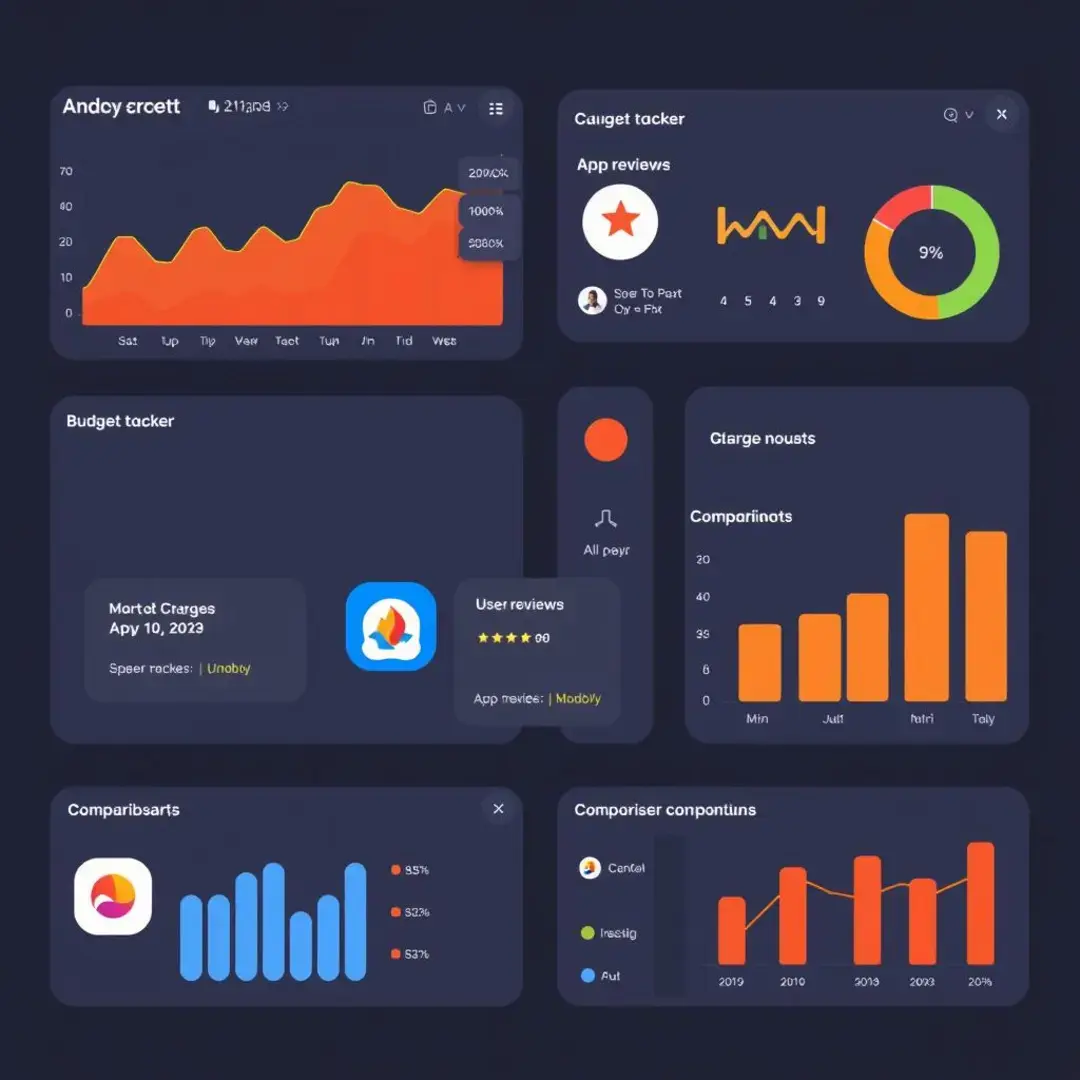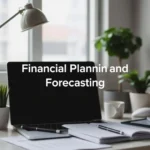Expense Management
Introduction

Overview of Expense Management in Financial Planning and Forecasting
Expense management is the process of tracking, analyzing, and controlling expenses to ensure organizational efficiency and financial health. It encompasses everything from budget creation, to expenditure tracking, and reporting. For advanced users, it goes beyond mere tracking; it is about aligning spending with strategic objectives to enhance overall performance and sustainability.
In strategic financial planning, expense management plays a critical role by providing insights that guide investment decisions and cost-saving initiatives. By effectively managing expenses, organizations can allocate resources toward growth opportunities, ultimately influencing profitability and market competitiveness. Comprehensive expense insights also help businesses make more informed decisions about operational adjustments and financial forecasts.
Key Trends in Expense Management

Emerging Trends
The advent of AI and machine learning technologies is revolutionizing expense management by automating repetitive tasks and forecasting future expenses more accurately. These technologies can analyze historical data, identify spending patterns, and even provide recommendations for cost optimization. By leveraging AI, companies can significantly reduce the time spent on manual processes, leading to increased productivity.
Blockchain technology is making waves in the finance industry, including expense management. Its ability to provide transparent, tamper-proof audit trails offers organizations enhanced security and accountability in their financial transactions. This technology can streamline expense approval processes, making them more efficient while reducing the risk of fraud.
With the increase in mobile technology, real-time expense tracking has become a significant trend. Organizations are adopting apps and platforms that allow employees to upload receipts, categorize expenses, and monitor budget limits as expenses occur. This immediacy not only improves accuracy in expense reporting but also supports more proactive budget management.
Industry Impact
Financial institutions are increasingly focused on developing innovative expense management solutions to better serve their clients. This shift is prompting these institutions to invest in technology and software that enhance their own expense management capabilities as well. The resulting improvements help financial organizations maintain compliance and streamline their internal processes, ultimately impacting their bottom lines.
As expense management tools evolve, auditing and compliance practices are also adapting. Businesses are finding that automated tracking and reporting features reduce discrepancies and thus streamline auditing processes. Additionally, enhanced compliance features ensure organizations adhere to regulations, enhancing financial transparency across the board.
Challenges and Limitations
With the integration of technology into expense management, data security and privacy are significant concerns that businesses must address. Sensitive financial data can be vulnerable to breaches if proper security measures are not in place. Companies need to invest in robust cybersecurity protocols to safeguard this information.
The complexity of integrating new expense management solutions with existing financial systems poses another challenge for organizations. Many companies may face difficulties in synchronizing data across platforms, leading to inefficiencies. Therefore, organizations need to conduct thorough assessments and perhaps involve IT professionals to ensure seamless integration.
While advanced tools can automate many aspects of expense management, there is still a significant need for skilled professionals who can interpret data and drive strategic decision-making. Organizations should prioritize training and development to equip employees with the skills necessary to leverage these tools effectively.
Future Outlook

Future Developments
As technologies advance, predictive expense analytics is set to become a game-changer in expense management. This approach involves analyzing patterns in spending to make informed predictions about future expenses. Such capabilities will empower organizations to create proactive financial strategies, optimize budgets, and effectively allocate resources.
The future of expense management also lies in automation. Automated processes will enable faster approvals and tracking of expenses through integrated platforms. These automated systems will reduce human error, enhance compliance, and lead to improved overall efficiency.
Market Predictions
The expense management market is expected to experience significant growth over the next few years, driven by increasing mobile capabilities and the demand for financial accuracy. As more businesses recognize the benefits of adopting advanced expense management solutions, there will be a shift towards more sophisticated tools that support financial planning processes seamlessly.
With the growing demand for expense management solutions, consolidation in the industry is anticipated. Larger companies may acquire smaller startups to enhance their offerings and gain a competitive edge. This competition will ultimately lead to better solutions and lower costs for consumers, fostering innovation in the market.
Potential Impact on Users
The adoption of advanced expense management tools will likely result in improved efficiency for organizations. By reducing manual tasks and streamlining processes, businesses can divert resources to strategic initiatives that drive growth. Furthermore, the ability to analyze expenses effectively will provide insights that can lead to significant cost savings over time.
Enhanced analytics and reporting features available through expense management solutions will empower decisiveness in organizations. With real-time insights, businesses will be better positioned to make timely financial decisions that influence their success. This capability allows for proactive management of finances, facilitating a more agile approach to overall business strategy.
How to Choose the Right App

Step-by-Step Guide
The first step in choosing the right expense management app is assessing your specific business needs. Identifying pain points in the current process can help clarify what features will be most beneficial. This assessment should involve various stakeholders to ensure a comprehensive understanding of requirements across the organization.
Once needs have been identified, the next step is to evaluate available solutions. Businesses should conduct thorough research, reading reviews, and seeking recommendations from other organizations. Comparing features, costs, and customer service will provide a clearer picture of which solutions offer the best fit for the business.
After selecting an expense management app, the focus must shift to implementation and integration. It’s crucial to have a well-planned rollout strategy that includes training for staff and support from the provider. Ongoing support and optimization will help ensure that the solution works effectively for the organization.
Conclusion

Expense management is a vital component of effective financial planning and forecasting. As businesses evolve, understanding and embracing the latest trends, overcoming challenges, and adapting to emerging technologies will position organizations favorably in a competitive landscape. By leveraging advanced expense management solutions, businesses can enhance efficiency, streamline processes, and ultimately achieve their financial goals. As we look to the future, those who proactively address their expense management strategies will find themselves leading the charge in innovation and success.
Factors to Consider
When selecting an expense management app, businesses must ensure it is scalable and flexible enough to accommodate their growth. A solution that can adapt to evolving needs will provide long-term value and prevent the need for costly re-evaluations of systems down the line. Flexibility in features and pricing models is also essential for organizations of varying sizes and structures.
Another critical factor is the ability of the expense management tool to integrate seamlessly with existing accounting software. Integration minimizes the risk of data silos and ensures all financial data flows efficiently harmonizing various departments. Organizations should seek apps known for compatibility with widely-used accounting solutions.
Robust reporting and analytics features are vital for any expense management app. The ability to generate insightful reports quickly enhances strategic decision-making and encourages proactive financial management. A solution that provides customizable reports will help meet the unique needs of the business.





